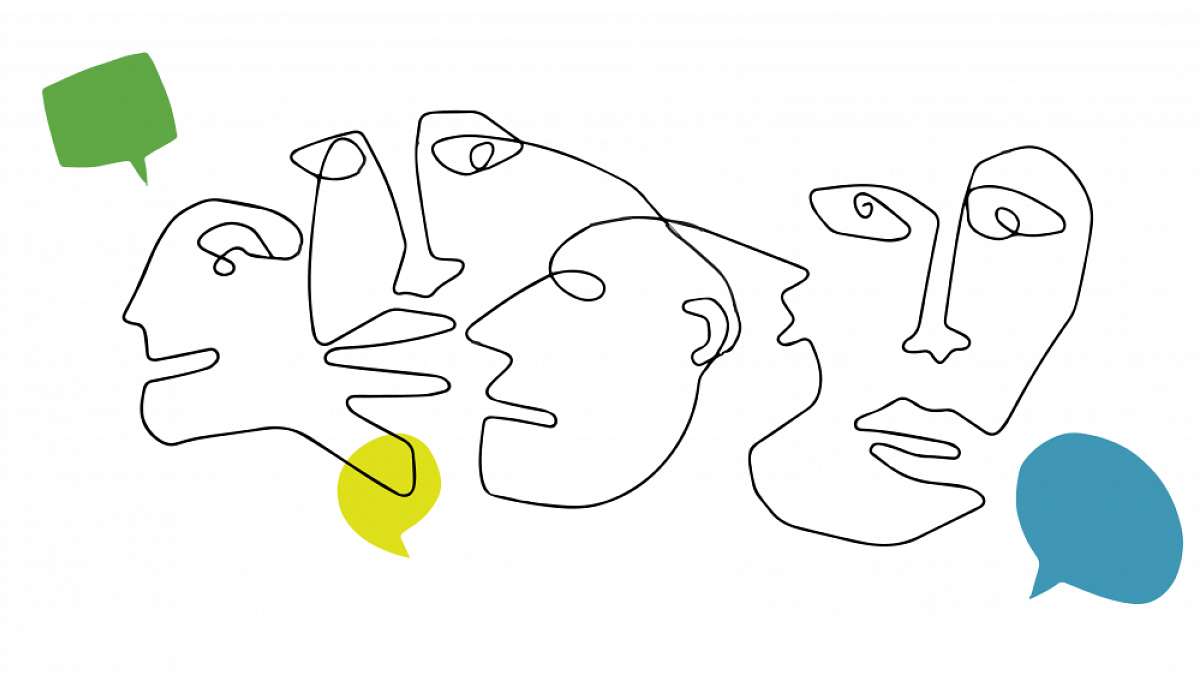With the goal of nurturing a productive conversation among University of Oregon community members who hold diverse academic, professional and personal perspectives, the Office of the President will inaugurate a campuswide 2018 event series dedicated to freedom of expression.
The series aims to address challenging, contemporary issues of free expression on college campuses. Lectures, panels, discussion groups, art exhibitions and other events will take place throughout winter and spring terms. Events are co-sponsored by schools and colleges, academic and administrative units, and departments.
While certain events will be open only to specific campus groups, such as faculty members or students, the majority will be open to all. Everyone in the campus community is invited and encouraged to participate in the events and in the ongoing discussions they are meant to stimulate. Use the hashtag #expressUOself to join the conversation on social media.
"At the core of any great educational institution is freedom of speech and its corollary – academic freedom. Teaching students to be critical thinkers requires a free flow of ideas that challenge conventional wisdom and move us out of our comfort zones," UO President Michael H. Schill said. "However, we do have a responsibility to think about the effect of our speech on others. Just because we have a right to do something, doesn’t mean that we should do it. My hope is that this series will explore these concepts and the tensions they create."
Schill tapped two campus leaders to assist with the planning and implementation of the series. Marcilynn A. Burke is dean and Dave Frohnmayer Chair in Leadership and Law with the School of Law, and Juan-Carlos Molleda is the Edwin L. Artzt Dean of the School of Journalism and Communication.
“Colleges and universities across the country are engaged in debate over the value of free expression, the importance of the First Amendment and the impact of speech on community and inclusion on our campuses,” Burke and Molleda said in a statement to campus. “The goal of the Freedom of Expression Series is to explore the content, scope and limits of the First Amendment on college campuses. It is an opportunity both to celebrate and debate the right of every American to freedom of expression while nurturing inclusive campus conversations with broad and diverse perspectives.”
The series launches Feb. 13 with “Looking Up from the Bottom of the Well,” a talk by john a. powell, professor of law, African-American studies and ethnic studies at the University of California, Berkeley. Invited to UO to deliver the Derrick Bell Lecture in the School of Law, powell is an internationally recognized expert in the areas of civil rights and civil liberties.
His talk will address constitutional dilemmas arising from the clash between fundamentally important speech principles and the potential harms caused by some forms of speech. He spells his name without capital letters.
“Free speech is a fundamental human right,” Burke said. “There is a call for various institutions to protect this right, including colleges and universities. At the same time, such institutions are being asked to try to ensure that vigorous and open dialogue is not used as a means to engender violence, oppression, exclusion or acrimony. Through john a. powell’s talk and the rest of this series, we hope to inspire the university community to engage in a way that fosters an inclusive community aimed at the creation and advancement of knowledge and the promotion of human flourishing.”
On Feb. 23 and March 9, the School of Journalism and Communication and Erb Memorial Union will partner to sponsor a pair of roundtable discussions for students, “Your Campus, Your Voice.” SOJC instructors Lisa Heyamoto and Todd Milbourn will facilitate the conversations; otherwise, these roundtables are open to UO students only and will focus on their ideas and aspirations for creating a campus culture that welcomes diverse, even unpopular, viewpoints while maintaining a respectful environment.
“Face-to-face conversations can take us out of our social media bubbles, help us create meaningful dialogue and explore not just what divides us, but what we hold in common, as well,” Milbourn said.
Heyamoto added, “It’s critical to have open, respectful and sometimes difficult conversations about what free expression means and how it plays out in different communities. That may entail talking not just about what is but what could be."
Space at both the roundtables is limited; interested students are invited to RSVP through the events calendar.
Rounding out the slate of inaugural events, “Allies, Not Enemies: Intellectual Freedom and Social Justice” is a March 5 forum to be hosted by the UO Libraries. Distinguished panelists will include Jody Gray, director of the American Library Association’s Office of Diversity, Literacy, and Outreach; James LaRue, director of the association’s Office of Intellectual Freedom; and Emily Knox, assistant professor in the School of Information Sciences at the University of Illinois Urbana-Champaign.
“The perspectives of the panelists will, no doubt, enrich the conversation about freedom of expression,” said Adriene Lim, dean of libraries and Philip H. Knight Chair. “For librarians, our focus on intellectual freedom and on the Library Bill of Rights has meant that we are on guard against any ideological bias or censorship in our work, even as we also cherish our values of diversity, democracy and social justice. We know that to achieve intellectual freedom, the voices and histories of people who have been oppressed or marginalized need to be made accessible and preserved in the record.”
—By Jason Stone, University Communications and UO Libraries


